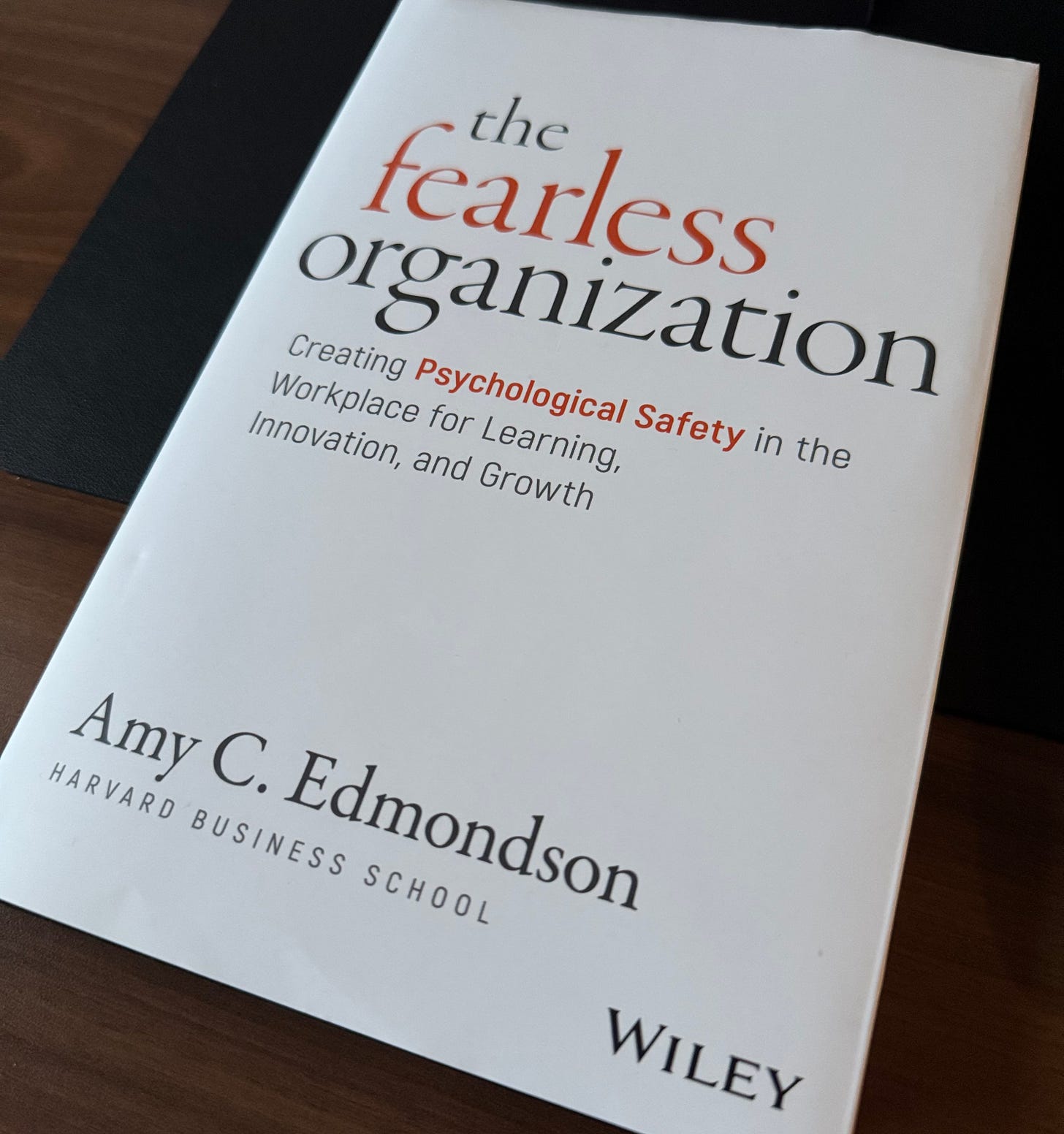"The fearless organization" - Small Book Bit
Psychological safety is a key element for systems thinking to thrive and support a learning organization
Psychological safety: the belief that one can speak up without risk of punishment or humiliationIn her book “The fearless organization” Amy C. Edmondson provides an outstanding and eye opening analysis of the different elements involved in creating environments where the removal of fear can allow employees to contribute freely and impactfully to the organization’s goal.
Fear is the 8th of 14th Deming’s principles to improve management effectiveness:
Drive out fear, so that everyone may work effectively for the company.
Eliminating such fear and maintaining a system where respect and mutual understanding is guaranteed, enables a profound change in the way people work.
Improvements of the overall systems become easier because members of the organization can contribute, with their insights, into the improvements of the system they live in. As a result, people end up improving the overall system effectiveness by improving at the same time their working situation.
It creates a pervasive quality that influences the whole process and lifts all its members.
The organization will not be immune to failure, the only difference is that these failures are because of a wrong assumption when modelling the problem and solution, not because of naive reasoning.
But luckily a wrong assumption is the base for a more correct understanding of the world.
Intelligent failures, in a learning organization, are celebrated and considered critical for its growth. Failure has to be accepted if obtained based on an intelligent strategy that reveals unexpected flaws in our understanding of our reality.
If you think about it, science is fundamentally based on the assumptions of being wrong or proving somebody wrong following a methodical, repeatable, and intelligent process. Unfortunately when science was applied to management it generated “Taylorism” (Scientific Management) which has long been abandoned but left a profound impact in how management is still taught and believed nowadays.
Because of the social aspect of the system (the organization), a psychological element is necessary for the organization to perform effectively. This element represents the underlying agreement on the fact that the human mind and human behavior can impact tremendously the effectiveness of an organization.
Enhancing the organization’s members’ impact can be done by creating such space so that the overall output of the system is bigger than the sum of the parts.
An environment with such qualities allows members to apply improvements enhanced by systems thinking which has the precondition that members must have a chance to learn, experiment and fail in order to improve the organization’s process.
Only then effective and bold changes be made and experiments run because they are supported by the environment and collectively improved.
Takeaway:
For an organization to constantly learn it is necessary to remove, in its members, the fear in speaking up due to possible retaliation. As necessary as it is for many other aspects (transparency purposes, auditing, legal compliance, safety), removing fear from the company and supporting an environment with psychological safety is surprisingly critical for a company to thrive its business because it allows to set in place practices based on a systemic view of the organization’s process.
See also:
What Psychological Safety Looks Like in a Hybrid Workplace by Amy C. Edmondson and Mark Mortensen



